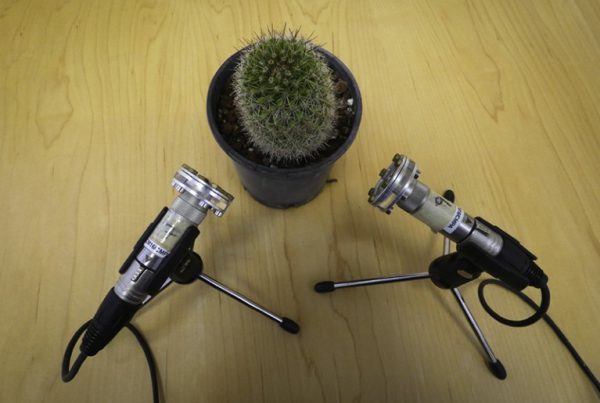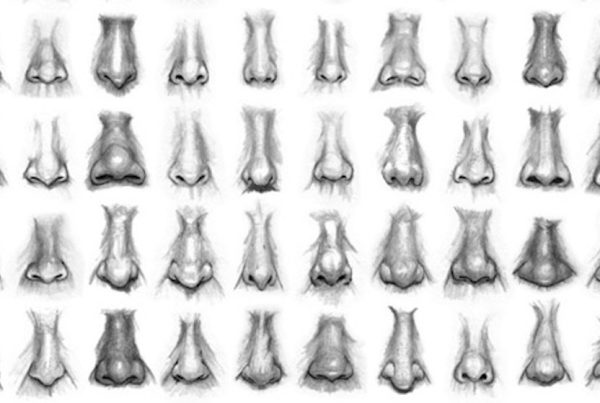- Research shows that autistic people often experience physical discomfort and anxiety as a result of sensory processing issues.
- The intensity of sensory issues can be hard for people with autism to explain or for others to understand.
- School children may struggle to maintain composure or focus in learning environments.
- Sensory issues often continue into adulthood, and may interfere with work or interpersonal relationships.
When I was little, there were so many things I couldn’t tolerate: high-pitched noises; the sight of certain fruits or of wet socks (which made me think of how horrible they felt); sunlight; fluorescent lighting in shopping malls; the smell of peanut butter and other foods.
As an adult, I’m not quite so bad. Sound is still a huge issue, particularly around the dinner table and at night. Too much time in a shop is likely to send me back to bed. And I still have to cut the tops off of every pair of socks I wear. I’m not alone; over 96 percent of autistic children report hyper- and hypo-sensitivities in multiple domains,1 and sensory differences often continue into adulthood.2
While a lot of people have aversions to particular sounds, sights, smells, tastes, or physical sensations, the way in which autistic people experience negative sensory input is at a level that can be hard to describe to non-autistic people. It’s also at a level that makes it not just unpleasant to be in certain situations or in contact with particular substances, but completely impossible.
When I hear someone scraping their plate, I don’t just hear it; I feel it with every fibre in my body. I feel it in my gut and my chest. My teeth feel as if someone’s filing them with a rasp. My head goes temporarily blank and I can’t think of anything to say. Anxiety wells up inside of me and I need to get myself away from the plate scraper.
And, worst of all, the experience stays with me for ages after. My mind keeps getting pulled back to the noise for the rest of the day. I can even remember specific feelings caused by specific incidents months, or even years, afterward.
This is what can be hard for many people to understand about autism and sensory issues. It’s not that the lights are a bit too bright, or the noise is a bit loud. It’s that it’s causing a horrific, painful, worrying, sickening sensation throughout my entire body that is completely overwhelming and unbearable.
Research shows that autistic people consistently experience physical discomfort and anxiety as a result of sensory issues.3 When we consider sensory processing issues in this way, we can appreciate just how difficult it can be for autistic individuals to manage daily demands, such as coping with school environments.4 And the problems don’t stop with school, of course. Being in the workplace, parenting, or completing daily tasks like cleaning and shopping can all become unmanageable.
My client Daniel told me, “As a child, I could not be around my sister crying. I was always getting into trouble because I’d start screaming to try and drown her out. I feel horrendous now, as a dad, but crying has the same effect on me. I have to leave the room and let my wife take over or I feel like I’m going to collapse.”
Another client, Shona, described the impact of sensory issues when it comes to attending university. “There are days when I can’t go in. I can’t stand the smell of the cleaning products. It makes me physically sick. And with the lighting, I can’t concentrate. Sometimes I’ve ended up with a migraine, which I used to get a lot at school. I want to love university, but a lot of the time I can’t even turn up.”
Autistic people are often confronted with little empathy when it comes to sensory processing issues. Diana described how, when she got together with her partner, she explained to him that she couldn’t stand it when he whistled. “I tried to do it really nicely and took responsibility that it was my issue. But he responded by making a joke of it and whistling to annoy me. I had a total meltdown and walked out. Then he got the message.”
If you’re autistic, it might be difficult to explain to other people how a sound, light, or sensation makes you feel. One thing that is important to get across is that this is very real, and it’s probably very different from how they experience the same sensory input.
And if you’re the parent, partner, co-worker, or someone else who has a relationship with an autistic person, trust them on this one. If they say a sound, or light, or fabric, or a mismatched piece of furniture is causing them pain, it really is—in a very intense way.
References
1. Marco EJ, Hinkley LB, Hill SS, Nagarajan SS. Sensory processing in autism: a review of neurophysiologic findings. Pediatr Res. 2011 May;69(5 Pt 2):48R-54R. doi: 10.1203/PDR.0b013e3182130c54. PMID: 21289533; PMCID: PMC3086654.
2. Crane L, Goddard L, Pring L. Sensory processing in adults with autism spectrum disorders. Autism. 2009;13:215–228.
3.Howe, F.E.J., Stagg, S.D. How Sensory Experiences Affect Adolescents with an Autistic Spectrum Condition within the Classroom. J Autism Dev Disord 46, 1656–1668 (2016). https://doi.org/10.1007/s10803-015-2693-1
4. Dawson, G., & Watling, R. (2000). Interventions to facilitate auditory, visual, and motor integration in autism: A review of the evidence. Journal of Autism and Developmental Disorders, 30, 415–421. doi:10.1023/A:1005547422749.Return to ref 2000 in article
Source: How Autistic People Experience Sensory Processing Issues | Psychology Today













